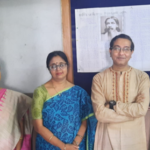- About the Department
- Faculty Profile
- Courses offered
- PO and CO
- Certificate / Add-on courses
- Teaching-learning
- Result and Student Progression
- Departmental Activities and Achievements
- Photo Gallery
VISION:
The vision of the department is to develop itself as a centre of academic repute through quality teaching that encourages development of historical outlook, critical thinking ability, research aptitude, language competence and strong ethical value.
MISSION:
The primary mission of the department of History is holistic development of the students with emphasis on historical aptitude and thereby reasoning, to make them able to contribute effectively for their individual welfare and for the welfare of the society at large.
The department is committed to offer comprehensive educational knowledge in History and allied disciplines to the students, most of who are first generation learners and are from economically underprivileged sector.
The department has a mission to familiarise the students with modern technologies, methods and facilities through learning experiences, so that, they can meet the challenges to come, in this ever changing modern world as they would be competent enough to evaluate situations from a logical and historical perspective.
The department is committed to foster professional and communication skill among the students, to develop their personalities and to make them suitable for professional lives.
The department is always trying to create a learning environment that helps to instill in students a strong ethical value and a sense of responsibility along with self-reliance.
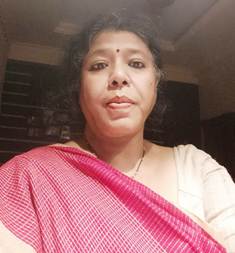
Smt. Banani Gangopadhyay
Designation: Associate Professor
Email:
Phone Number:Get Detail »
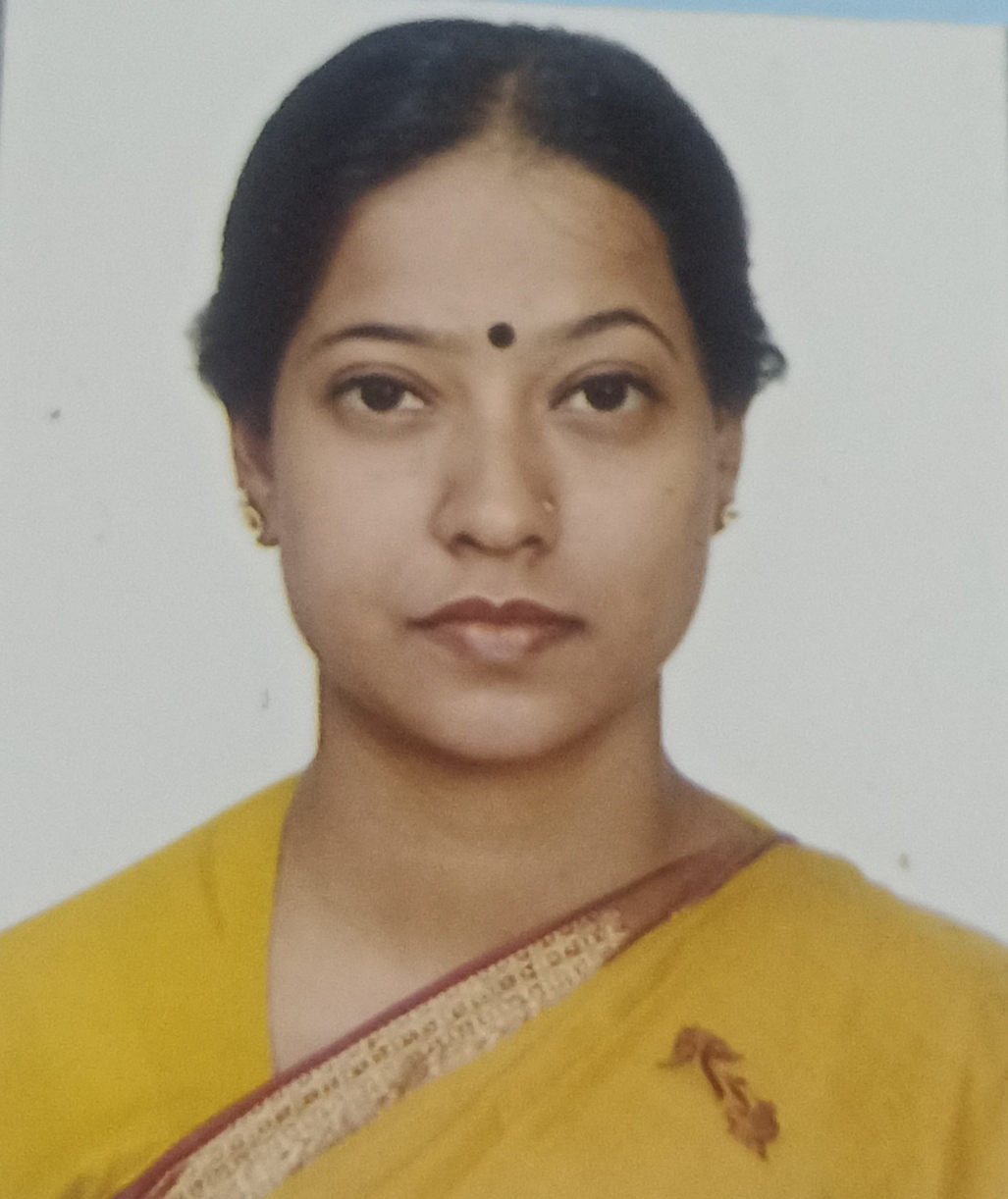
Smt. Kasturi Kar
Designation: Associate Professor
Email: kasturi.kar@rediffmail.com
Phone Number: 9433900809
Get Detail »
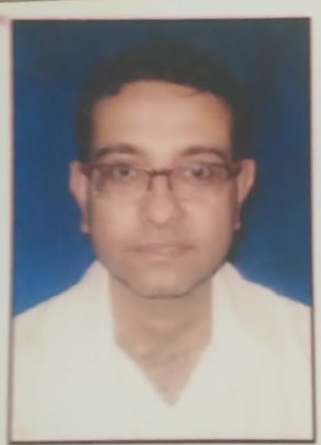
Sri. Rudranil Bhattacharjee *
Designation: State Aided College Teacher
Email: rud_jan@yahoo.com
Phone Number: 9432384729
Get Detail »
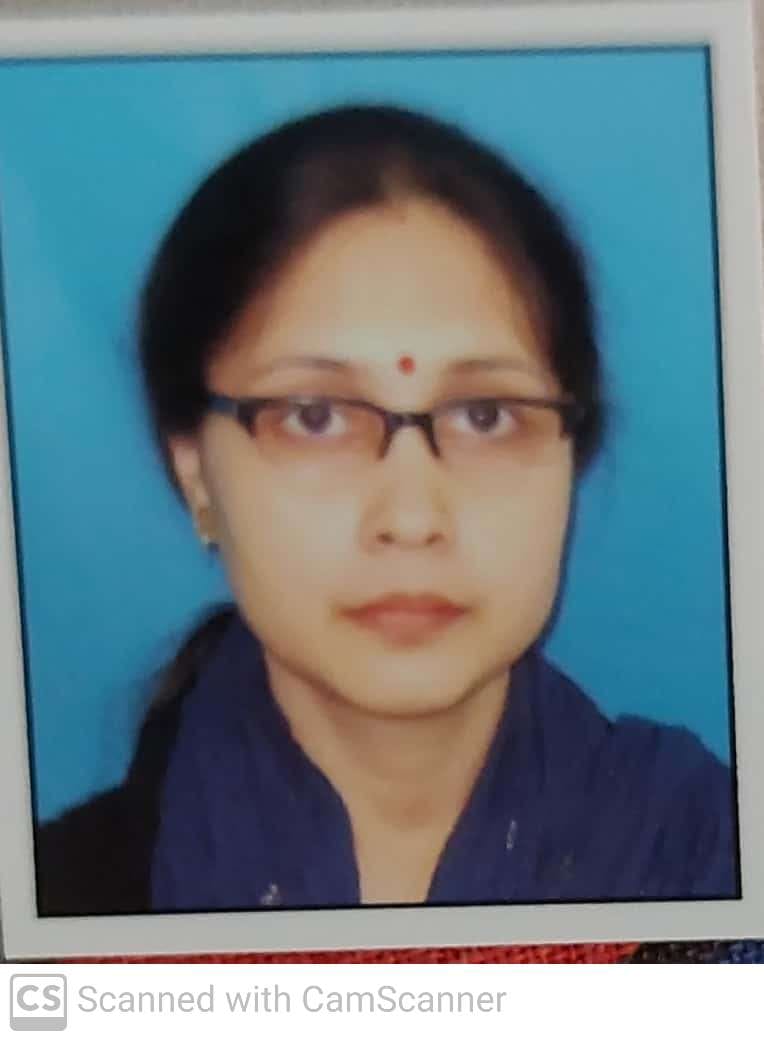
Smt. Anasua Mandal Banerjee
Designation: State Aided College Teacher
Email: anasua0108@gmail.com
Phone Number: 9836055453Get Detail »
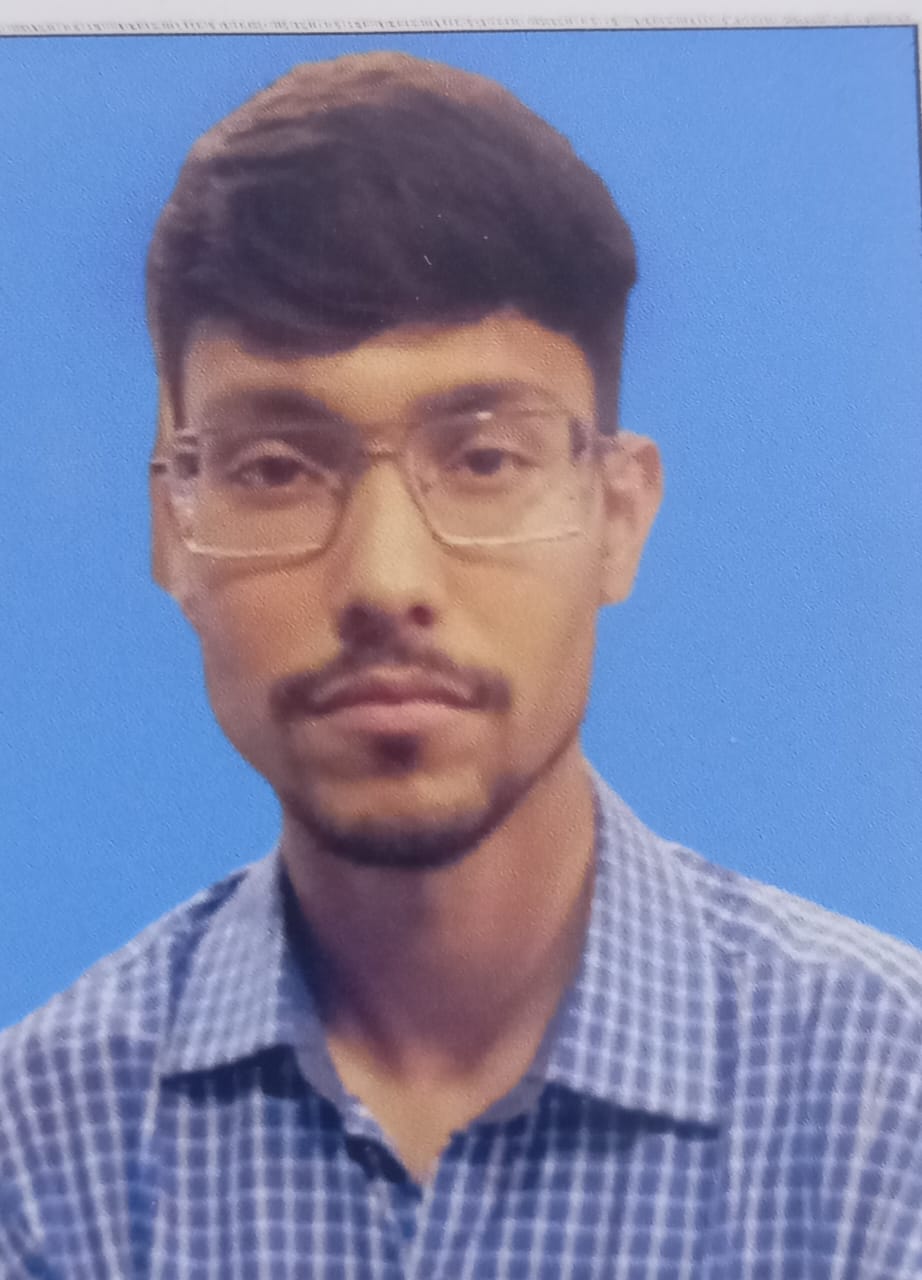
Sri Agnishwar Chakraborty
Designation: State Aided College Teacher
Email: agnichakraborty92@gmail.com
Phone Number: 9051071607Get Detail »
| Courses Offered | Course code | Duration | Examination system | Total Credits |
|
B.A. Major in History (without research) |
History Major |
3 years | Semester |
DSCC – 25×4= 100 credits; SEC 4×3=12 credits; |
|
B.A Major in History (with research) |
History Major |
4 years | Semester |
DSCC – 22X4=88 credits; Research work-12credits; SEC 4×3=12 credits;
|
| B.A Multidisciplinary (MDC) with History |
MDC History |
3 years | Semester |
DSCC- 4×8=32 credits; SEC 4×1=4 credits; |
| B.A Interdisciplinary (IDC) in History | History IDC | 6 months (In any one semester of 1 or 2or 3) | Semester | 03 credits; |
A B.A degree generally equips a student with certain skills like critical thinking, research and writing effectively.
This degree opens up a lot of prospects in terms of jobs and pursuance of higher education.
A graduate with history as a general subject can opt for a career in teaching, banking, management, administration, journalism, travel & tourism, law, content writer etc. Actually Arts is a diverse and stream and career option in Arts can be well paying as well as satisfying in terms of work.
Programme outcome of B.A History Honours:
The undergraduate programme of History honours makes a student aware of international situations, sensitises them to the existence and desirability of multiple perspectives through which knowledge about past is constructed.
Encourages them to think critically, make them able to analyse different perspectives, to articulate their own views regarding various themes in history, to develop a sense of active citizenship, to inculcate a humanitarian spirit within them.
The expected outcome of this programme is to provide students with a knowledge of interconnectivity of our past with the present. All these establishes a platform over which a student can pursue higher studies in History.
Besides the skills specific to the discipline, the wider life skills of argumentation and communication, attitudes and temperaments, general values inherent in a discipline that studies human beings in their social context with all its complexities, ultimately enable one to live a rich, productive and meaningful live.
Their possible career options may be Administrative Assignments, Foreign Service, Journalism, Teaching, Media, Policy making and Governance, Public life and People’s Representation, Social work, Archives, Museum and Archaeological research, Research.
CBCS SYLLABUS IN HISTORY HONOURS 2018
CC1: HISTORY OF INDIA: FROM THE EARLIEST TIMES TO C 300BCE
Course outcome
On completion of the course students are expected to
- Gain knowledge about the sources of early Indian history and
- Have acquired knowledge on the pre-history of the Indian
- Have acquired knowledge on the beginning of civilization in
- Get an idea about jati, varna, purushartthas, chaturashrama and the position of women in early
- Gain knowledge on the strength of diversity of our
CC2: SOCIAL FORMATIONS AND CULTURE PATTERNS OF THE ANCIENT WORLD OTHER THAN INDIA
Course outcome
On completion of the course students are expected to
- Compare the process of development from primitive ages in India as well as other parts of the world, during the same
- Boost the knowledge about the history of ancient
- Get an idea about the history of ancient
- Gain knowledge about the history of the Roman
- Explore the relationship between the past and the
CC3: HISTORY OF INDIA C300BCE TO C 750E
Course outcome
On completion of the course students are expected to
- Have a knowledge about the socio-political aspect of ancient
- Analyse the economic aspect of the ancient age.
- Gain knowledge about the protestant religions of ancient India.
- Get an idea about the growth of monarchical, republican and other forms of government in ancient
- Analyse the interconnection between past and present.
CC4: SOCIAL FORMATION AND CULTURE PATTERNS OF THE MEDIEVAL WORLD OTHER THAN INDIA
Course outcome
On completion of the course students are expected to
- Get an outline of the historiography of the decline of the Roman Empires
- Get knowledge of the society, religion, polity and economy in medieval
- Gain knowledge about the rise of feudalism in medieval Europe.
- Have an idea about the rise of universities, towns, witchcraft and magic in medieval
- Have knowledge about Judaism, Christianity, Islam and the
CC5: HISTORY OF INDIA CE750-1206
Course outcome
On completion of the course students are expected to
- Get an idea on the early medieval period in its totality.
- Get an idea on the socio-economic structure of the early medieval
- Get an idea on the cultural aspects of the early medieval Indian
- Have knowledge about the political developments in early medieval
- Gain knowledge about the Arab invasion of Sind and its
CC6: RISE OF MODERN WEST-1
Course outcome
On completion of the course students are expected to
- Get an idea on the transition phase from feudalism to
- Get knowledge of the exploration of the new world by Portugal and
- Know the concepts like renaissance, reformation, economic developments associated with this
- Have knowledge about the price revolution, agricultural revolution and the enclosure
- Gain knowledge about the rise of national monarchies and the emergence of the European state system.
CC7: HISTORY OF INDIA 1206-1526
Course outcome
On completion of the course students are expected to
- Get an idea on the sultanate period of India.
- Get an idea on the society and economy of this period
- Get an idea on the cultural and religious aspect of this
- Gain knowledge about the political developments of the sultanate
- Have knowledge about the emergence of regional dynasties and identities in Vijaynagar, Bahamani, Gujarat, Malwa, Jaunpur and Bengal.
CC8: RISE OF THE MODERN WEST II
Course outcome
On completion of the course students are expected to
- Get an idea of the crisis in the 17th C Europe.
- Have an idea about the printing revolution, military revolution and scientific revolution in Europe.
- Gain knowledge about the English revolution and the origins of enlightenment in
- Clear concepts like Mercantilism and Industrial
- Get an idea of Absolutism in Europe in the 17th C and 18thC.
CC9: HISTORY OF INDIA1526-1605
Course outcome
On completion of the course students are expected to
- Get an idea on the historiography of the Mughal age.
- Get an idea of the political history of the Mughal
- Get an idea of the socio-economic aspects of the Mughal
- Have knowledge about the concepts like jabti, mansab, jagir
- Gain knowledge about the growth and development of religious toleration, Sulh-i-kul, Bhakti and Sufi movements during the era.
CC10: HISTORY OF INDIA 1605-1750
Course outcome
On completion of the course students are expected to
- Have knowledge about the political and social developments of the Mughal
- Get an idea of Mughal art and
- Get an idea of the economic aspect of the Mughal period.
- Gain knowledge about the various patterns of regional politics during the
- Have an idea about the 18th Century crisis and its related
CC11: HISTORY OF MODERN EUROPE (c.1780 -1939)
Course outcome
On completion of the course students are expected to
- Get an idea of the political history of the French revolution, the Napoleonic era and European repercussion.
- Have knowledge about the revolutionary and radical movements of 1830 and
- Form an idea on capitalist industrialization of late 18th
- Gain knowledge about the various forces of nationalism and the reorganisation of the states in the 19th and 20th Centuries in Europe.
- Get an idea of the World Wars and diplomacy post the World Wars.
CC12: HISTORY OF INDIA (c.1750 -1857)
Course outcome
On completion of the course students are expected to
- Form an idea on colonialism and its impact on
- Form an idea on the economic impact of
- Have an idea of the social impact of colonialism and the Indian response to
- Get an idea about the colonial state and its
- Form an idea of 1857 mutiny as well as other mutinies of the same era.
CC13: HISTORY OF INDIA (c.1857 -1964)
Course outcome
On completion of the course students are expected to
- Get an idea about the cultural changes and the socio-religious reform movements of the 19th
- Form an idea on the Indian national movement and the impact of
- Analyse the role of communalism and rise of Hindu Maha Sabha, Muslim League in Indian politics.
- Have a knowledge of the transfer of power, partition, integration of the princely states and the adoption of the constitution of
- Gain knowledge about the development of parliamentary democracy, economic planning and foreign policy of independent
CC14: HISTORY OF WORLD POLITICS 1945-1994
Course outcome
On completion of the course students are expected to
- Form an idea on Cold War and its consequences in world politics.
- Have knowledge about the disintegration of the Soviet Union and its impact in world
- Form an idea on the rise of R.C and Sino-Soviet rift.
- Gain knowledge about the West – Asian
- Form an idea on
DSE-A1: HISTORY OF BENGAL (c.1757-1905)
Course outcome
On completion of the course students are expected to
- Form an idea on Bengal’s political history from Plassey to
- Form an idea on colonial economy and the drain of wealth in Bengal.
- Have an idea about the role of the Christian missionaries and the socio-religious reform movements in Bengal.
- Gain knowledge about the protest movements against the
- Form an idea on the partition of Bengal and its effects on society, polity and economy of Bengal.
DSE-B1: HISTORY OF MODERN EAST ASIA-I CHINA (c.1840 – 1949)
Course outcome
On completion of the course students are expected to
- Have an idea about the society, economy and polity of pre modern China.
- Get an idea on the rise of imperialism in China between 19th C and early 20th
- Form an idea about the anti-imperial movements in
- Get an idea on the history of reform movements in China between 1919-1949.
- Get an idea on the formation of communism in China 1921-1937.
DSE A3 : HISTORY OF BENGAL (c.1905-1947)
Course outcome
On completion of the course students are expected to
- Have an idea about the partition of Bengal and the Swadeshi
- Form an idea on Gandhian politics like Civil Disobedience, Quit India movement and other trends in nationalism.
- Form an idea on communal politics between 1906-1930.
- Get an idea about the rise of Subhash Chandra Bose and left-wing politics in
- Form an idea on partition of India, Independence, formation of
DSE B3 : HISTORY OF MODERN EAST – II JAPAN (c.1868-1945)
Course outcome
On completion of the course students are expected to
- Get an idea on the transition from feudalism to capitalism in Japan.
- Have knowledge about the restoration movement in
- Gain knowledge about the Meiji constitution and all round reforms in Japan.
- Get an idea on the Japanese
- Get an idea on the concepts like democracy, militarism, fascism in
SEC A (1) : ARCHIVES AND MUSEUMS
Course outcome
On completion of the course students are expected to
- Gain first-hand knowledge about archives and museums through visit to the museums and archives.
- Form an idea on the history of archives and museums, with special reference to
- Form an idea on types of archives and
- Get an idea on museum presentation and
- Have an idea about the role of archives and museums in society.
SEC B (2) : ART APPRECIATION :AN INTRODUCTION TO INDIAN ART
Course outcome
On completion of the course students are expected to
- Gain first-hand knowledge about Indian art and architecture through visit to a monument of national importance.
- Get an idea of pre historic and proto historic art.
- Get an idea on the Indian art between (C600BCE-600CE) and (C600CE- 1200CE)
- Have knowledge about Indian art and architecture from 1200 CE-1800 CE.
- Get an idea on contemporary art and architecture of India.
COURSE OUTCOME
CBCS IN HISTORY GENERAL 2018
HISG,GE-1 HISTORY OF INDIA FROM EARLIEST TIMES UPTO 300CE
Course outcome
On completion of the course students are expected to
- Gain knowledge on
- Gain knowledge on the protestant religions of ancient
- Gain knowledge on the political history of ancient India up to
HISG,GE-2 HISTORY OF INDIA FROM 300C TO 1206
Course outcome
On completion of the course students are expected to
- Gain knowledge on the political history of ancient India from 300C to
- Gain knowledge on Arab invasion in Sind.
- Gain knowledge on establishment of the Sultanate rule in
HISG,GE-3 HISTORY OF INDIA FROM 1206 to 1707
Course outcome
On completion of the course students are expected to
- Get knowledge regarding the rise of the Mughals in
- Gain knowledge regarding the rise of the bhakti and Sufi
- Get knowledge regarding the socio-economic and cultural aspects of the Mughal rule.
HISG,GE-4 HISTORY OF INDIA 1707-1950
Course outcome
On completion of the course students are expected to
- Know about the pre 1857 phase and post 1857 phase in Indian
- Know about the nationalist movement in
- Know about the formation of independent India and the adoption of the
DSE-A2: SOME ASPECTS OF EUROPEAN HISTORY: C. 1780 – 1945
Course outcome
On completion of the course students are expected to
- Form an idea on capitalist industrialization of late 18th
- Get an idea of the political history of the French revolution, Napoleonic era and European
- Get an idea of the World Wars and diplomacy post the World Wars.
DSE -B2: SOME ASPECTS OF SOCIETY & ECONOMY OF MODERN EUROPE 18TH TO 19TH CENTURY
Course outcome
On completion of the course students are expected to
- Get an idea of the Feudal crisis in Europe.
- Get an idea of Renaissance and Reformation in Europe.
- Get an idea of the transition from Feudalism to Capitalism and the rise of Industrial
SEC A1 HISTORICAL TOURISM –THEORY AND PRACTICE
Course outcome
On completion of the course students are expected to
- Know about ancient art and
- Know about Indo-Persian
- Know about colonial
SEC B1 MUSEUMS AND ARCHIVES IN INDIA
Course outcome
On completion of the course students are expected to
- Get knowledge about the definitions of museums and archives in
- Learn about the history of museums and archives in
- Get knowledge regarding the functions of the museums and archives in
| Certificate Course Name | Duration | Date | No of participants |
| Culinary History of India | 30 hrs. | 16.4.22-12.05.22 | 16 |
| Environmental History: An Analysis | 30 hrs. | 8.11.22 -28.2.23 | 11 |
| Prospects of Tourism | 30 hrs. | 1.3.23 -20.4.23 | 50 |
The Department of History follows a well-planned curriculum delivery process, the focal point of which is adherence to the academic calendar of the college. In accordance with the time frame stated in the academic calendar, the Department designs its teaching plan and distributes the work load among the faculties. The Department successfully upholds the culture of regular class teaching and on time completion of the syllabus along with taking special care to build a sense of inquisitiveness and logical thinking and interpretation within the students. Class tests are conducted on a requirement basis and innovative methods using internet facilities are also availed of for teaching.
| Serial Number | Year of Graduation | Name of the candidate securing highest CGPA |
CGPA in B.A. Honours (HISA) Examination of the University of Calcutta |
| 1 | 2021 | Aparna Halder | 8.462 |
| 2 | 2022 | Suman Biswas | 8.069 |
| 3 | 2023 | Shreya Ghosh | 7.636 |
The term Experiential Learning can be aptly applied for the educational tours conducted for the following reasons.
- At the Manicktala Police Museum the students were visiting a part of history as the house was built by the great Raja Rammohun Roy who himself was the pioneer of numerous social movements which altered the course of Indian history. In addition the exhibits at the museum spoke about the intrinsic details of the struggle for independence hitherto unavailable in textbooks.
- The Victoria Memorial Hall and the St. Paul’s Cathedral both being masterpieces of colonial architecture provided the students an opportunity to witness the grandeur of Gothic architecture in the case of St. Paul’s Cathedral and an amalgamation of various styles of architecture but chiefly Victorian in the case of Victoria Memorial Hall all outside the precincts of text books. Moreover the paintings, statues, weaponry, costumes and other exhibits had the effect of transporting one to that bygone period.
- In order to commemorate the occasion of World Heritage Week the faculty of the Department of History organised a study visit for the students of 3rd Semester History Honours and General as the study visit served the dual purpose of educating the students as well as completing a part of the curriculum on the 24th of November 2021 to Kolkata Centre of Creativity at Emami building, Tagore Park. It was a worthwhile visit as the students gained insights into the world of museums, rare artefacts of Bengal, tribal musical instruments, insects, Rabindranath and Shantiniketan.
- The Alipore Jail Museum offered students a peek into the lives of inmates who were imprisoned during the freedom struggle. The exhibits also showcased the sacrifice made by those nondescript revolutionaries to make India free from British rule thereby making one vividly realise the price of freedom that we are enjoying today.
Extension Activities
The Department of History was involved with the following extended activities wholeheartedly and passionately. The process of participation was endured through the joint participation of the teachers along with the students in a very delightful and proactive manner.
A short term certificate course commencing from 29th April to 21st June 2022 for students and teaching and non-teaching faculty was arranged by the Yoga Unit in collaboration with The Vivekananda Yoga Anusandhan Samsthana a branch of Yoga University of Bangalore. International Yoga day was celebrated with a special lecture by Dr. Abhijit Ghosh faculty member of Vivekananda Yoga Anusandhan Samsthana.
On the 10th of November a creative event in the form of a Food Exhibition cum Cuisine Challenge was organised for the students. The students not only whipped up regional delicacies but were also decked up in the specific traditional attire of that region which made it a highly colourful event. It truly felt like the coming to age of a new India whereby unity amongst diversity prevails and holds truth.
On the 14th of November which is celebrated as Children’s Day, Professors along with students went to a Children’s Home, (an orphanage) and distributed presents and food to those children of the home to make them happy and moreover to make them feel that they are not uncared about and the world thinks of them at large. It was an effort to make them realise that even though they had been separated from their parents they are not destitutes and society is by their side.
A 10 day Self Defence Training Programme was initiated on the 17th of November by the Women’s Forum under the supervision of Shian Jhuma Das for female students of the institution.
Needless to say there were numerous participants who attended the camp with great enthusiasm.
In a successful collaboration with Chandanagar Sarang Creations, a 25-day theatre workshop was conducted under the guidance of Sri Piyal Bhattacharya during the months of September to November, in which students took part. The culmination of the workshop resulted in a Street Play “Khancha O PakhirGolpo” which was highly applauded and received lots of appraisals.
An unique attempt was made to kinder and foster the light of knowledge by the means of a Book Fair on the 28th and 29th of November wherein the main initiator was the college’s Central Library. It was an immensely successful event with the participation of 22 publishers, students and professors.
Participating learning
Creation of a wall magazine was a joint enterprise by the students and teachers of the Department of History. The students enthusiastically took part to prepare the magazine by collecting data on Sri Aurovindo, the great revolutionary, saint and philosopher on the occasion of the 150th birth anniversary of Sri Aurovindo. This type of engagement increased the interest and joy of all the participants as a joint venture always build up a sense of collectivity amongst everyone


















